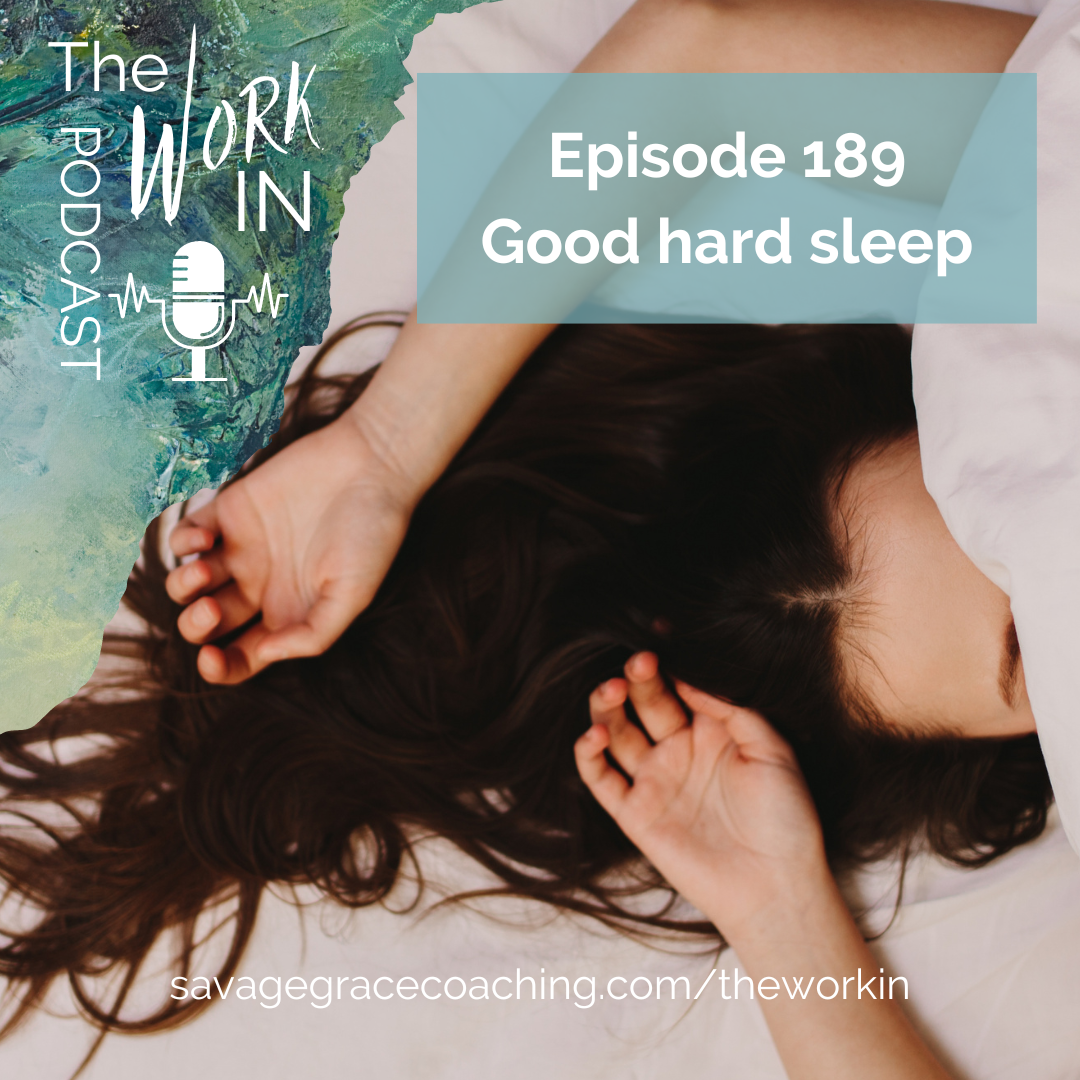
Welcome to The Work IN!
Connecting all the hard things
One of the most powerful tools we have to build resilience and overcome chronic stress and trauma is connection. It’s the first thing that is sacrificed in the face of stress injury and yet it is the number one thing we need if we’re going to heal.
In health and wellness, connection has become an overused meaningless word. Just like the words wellness and health. Our work IN today is a deep dive into some of the less obvious meanings of connection and how we can use it beyond the obvious to get and stay healthier physically, mentally and emotionally.
Good hard sleep
Sleep is a hard thing. Good sleep is even harder.The complexity of our network of systems makes it even harder to isolate the keys to getting a great night’s sleep when literally anything and everything can disturb our sleep. While occasional sleep disturbances can be normal for sure, long term sleep disruption is not. Our work IN this week is changing the way we look at the complex puzzle of sleep from a nice to have to a non negotiable priority in our health.
Uncommon sense on your plate
Eating “right” is a hard thing but not because it’s actually hard to do. Experts keep changing their minds, making unsupported nutrition recommendations that are riddled with conflicts of interest and have resulted in the exact opposite of health in the real world. That’s confusing and annoying and challenging but that’s not really what makes it hard either. Eating right is hard because we have outsourced our common sense when it comes to basic biology of nourishment for the bodies we live in. That’s our work IN today. We’re looking at 5 simple ways to reclaim the uncommon sense around nutrition in order to nourish the body, mind and nervous system.
Emotional Dysregulation 101
When a child is emotionally dysregulated we call it a temper tantrum, a phase and these days “big feelings”. When an adult is emotionally dysregulated we call it mental illness. What is it that happens or doesn’t happen between childhood and adulthood that paves the way for the long list of disorders now associated with emotional dysregulation and what can we do differently? That’s the topic for today’s Work IN.
Critical connections beyond weight loss
People are wired for connection. It’s an evolutionary survival mechanism innate in even the most introverted of us. And it’s repeated from our cultural community and tribal tendencies all the way down to a cellular level in the body. Connection in the context of health and wellness can look like mindfulness practices, building self awareness through meditation and journaling, setting healthy boundaries, improving work life balance, strengthening relationships with family and friends, getting involved in your community, building your own communication and leadership skills, tapping into hobbies and activities that bring you joy.
On the surface those things might not seem as critical to our health as getting our blood pressure under control or lowering our cholesterol and losing weight. But it’s precisely BECAUSE those things are critical that we need to acknowledge the influence that our connection to ourselves and our community has on those more measurable health outcomes. Today we’re discussing the internal and external connections that matter when we’re making changes to our health.
How to stop playing it safe and get out of protection, hypervigilance and anxiety
We are working our way through 5 categories of health with our Cat 5 challenge and today we’re diving into category 4 the nervous system. Last week we discussed the overlap of the nervous system and sleep and how we’re looking for ways to help the body feel safe enough to be able to relax into that parasympathetic so we can rest and be close to other people. Today I want to discuss how playing it safe ALL the time can actually keep you in a state of protection, hypervigilance and anxiety.






